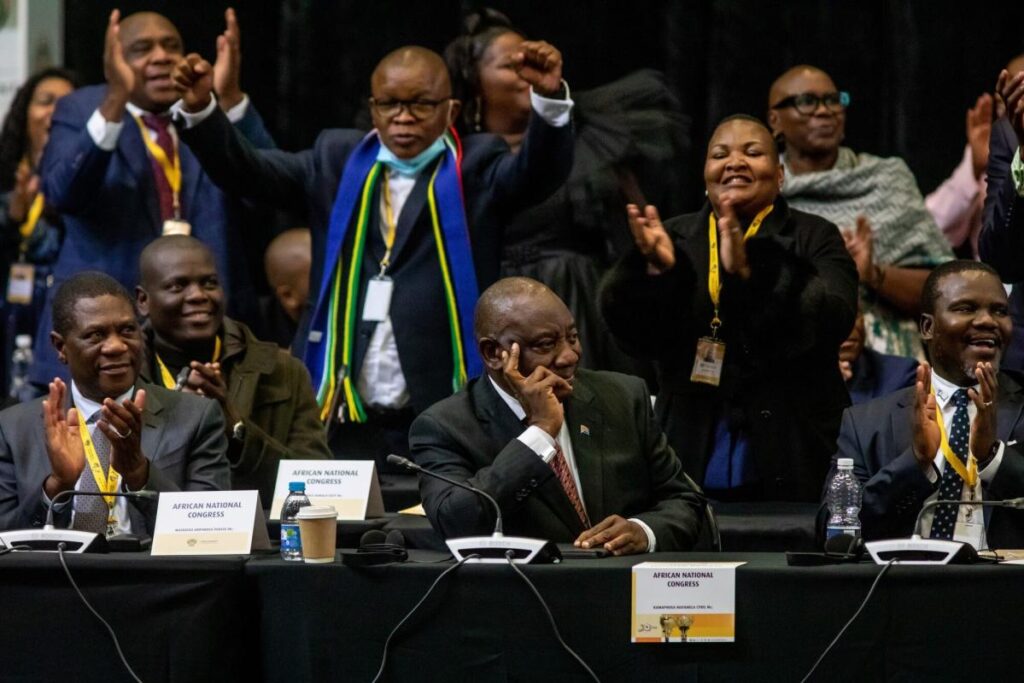(Bloomberg) — The formation of a business-friendly coalition government in South Africa has won the support of the majority of citizens, with the wealthiest most satisfied with its performance, a survey shows.
Most read from Bloomberg
Although three-fifths of the 1,204 people surveyed by the Social Research Foundation in September said the alliance, which formed in late June, was performing well, the results show support is strongest among white respondents, who generally are also the richest.
The poll also showed that there is still significant support for the populist policies of political rivals. Nearly a third of respondents said they supported the position of the Economic Freedom Fighters and former president Jacob Zuma’s uMkhonto weSizwe party.
The so-called Government of National Unity was formed after the African National Congress lost its parliamentary majority for the first time since taking power in 1994.
After the May 29 elections, the ANC initially considered an alliance with the EFF and MK parties, both of which advocated widespread nationalization, before settling on an alternative, broader grouping dominated by itself and the centrist Democratic Alliance, which retained its leader, Cyril Ramaphosa. the president of the country.
Support for the parties rose to 45% for the ANC, which won 40.2% of the vote in the election, and 24% for the DA, which won 21.8%, the SRF said.
“If the GNU wants to retain the support of voters in particular from the lower socio-economic strata, it will have to raise fixed asset investment, economic growth and job growth figures well above the levels currently forecast,” Frans thinks Cronje, head of the SRF. tank and research company, said in response to a question. “If we fail to eliminate these numbers, support for the GNU could decline enough to reverse the current GNU formation.”
The coalition was formed after years of economic stagnation, with the country’s poor, the overwhelmingly black majority, hardest hit by a 33.5% unemployment rate and deteriorating government services. The Democratic Alliance, whose leadership is predominantly white, has struggled to combat rivals’ accusations that it represents the interests of the wealthy.
Of white respondents in the survey, 73% said the new coalition is performing well, compared to 57% of black respondents. The gap widened further when respondents were asked whether they supported the policies of the populist parties. While no white respondents answered affirmatively, 36% of black respondents said they did.
The coalition is also backed by the country’s largest business lobby groups. The study had a margin of error of 3%.
Most read from Bloomberg Businessweek
©2024 BloombergLP







